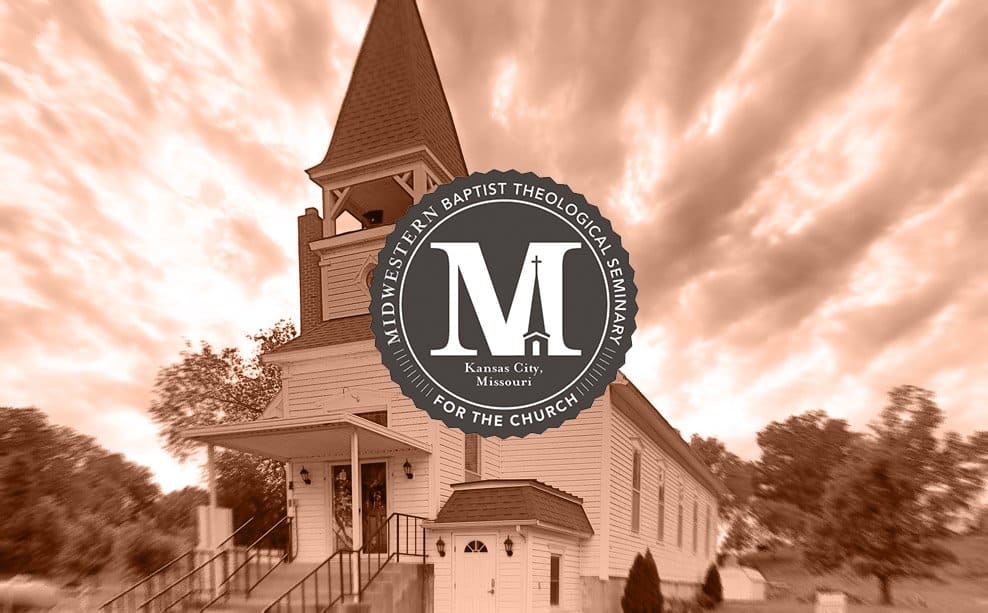I join a host of others who are so grateful for the new day dawning at Midwestern Baptist Theological Seminary. Jason Allen and his team are transitioning the seminary to the forefront of theological education. How? By reclaiming the priority of “why?” – doing everything they do “for the church.”
In a recent blog post, Allen addressed with amazing clarity key issues that are foundational to the cooperative ministries that we do as Missouri Southern Baptists. I asked him for permission to print most of that article below. Very insightful!
Allen writes:
“No man can serve two masters.
“This is true, and never truer than in theological education. Individuals and groups compete for institutional influence, adding their voice and, if permitted, interjecting their hand, into a seminary’s affairs. The U.S. Department of Education, accreditation agencies, donors, alumni, and all aspects of an institution’s constituency exert some measure of influence. Most of this is unavoidable and much of this is good. Yet for a seminary to exist for the Church, it must filter through this cacophony of voices and train its ear on the churches it serves.
“There is no better way to ensure a seminary serves the church than for the churches served to exercise absolute oversight of the seminary. Indeed, for a seminary to exist for the Church it must self-evidently demonstrate this commitment at every institutional pressure point of accountability. To paraphrase Ronald Reagan, ‘trust, but verify’ is an appropriate posture for churches to hold toward the seminaries [or any other institutions] they own.
Trustee oversight
“For Southern Baptist seminaries, local church oversight rests primarily in the trustee system. Elected by the Southern Baptist Convention (SBC), the seminary’s trustees act on behalf of the Convention’s churches to bear the governing and fiduciary responsibility for the institution.
“At times, the SBC trustee system reminds one of the Electoral College, with the same observers alternately defending or lamenting its peculiarities and function depending on their assessment of the board’s most recent decision rendered. Granted, it may even be true, to paraphrase Churchill, that the trustee system might be the worst form of institutional governance, save all other forms.
“The trustee system, and especially in light of bylaw revisions, sole member designations and the ever-present lesson of our own Convention’s history, is the best mechanism to perpetuate the Convention’s legal ownership and operational oversight of her seminaries. For Southern Baptists, the trustee system rightly honored and executed remains unsurpassed as the mechanism to accomplish church governance over the seminaries [or any other cooperative ministry].
Financial influence
“Southern Baptists have proven themselves relentlessly generous in funding their seminaries. So much so, that currently the Cooperative Program supplies between 25 and 45 percent of each of the six seminaries’ budgets. In addition to being generous, this sacrificial support is also healthy. The surest way to maintain operational control over an institution is to continue to be its strongest financial supporter.
“As Cooperative Program gifts become less of an institution’s operating budget, the temptation exists for a seminary to look elsewhere for funding and to succumb to external influence. As flowers grow towards light, institutions almost inexorably lean toward their sources of funding. [The Cooperative Program gifts from the churches to the state conventions and on to the SBC Executive Committee continues to be the largest private contribution to every one of our six seminaries. This also remains true for each of the institutions in the state conventions.]
“If one needs evidence, look to the many Baptist state colleges that have distanced themselves or altogether broken from their state conventions. For Southern Baptists, the pernicious taking of many of our state colleges and universities is one of the great tragedies in our Convention’s history. Those who engineer such moves bear judgment, and those who permit such moves bear little less. Though diminishing denominational support is a lamentable trend, it is not a permission slip to drift from denominational governance.
“Whether the Cooperative Program supplies 100 percent of an SBC seminary’s budget or one percent, from an ownership standpoint, the amount is irrelevant. Southern Baptists have built, funded, and own their seminaries. Any separation between the seminaries and the churches that own them is a malicious act.
“As it relates to ownership and governance, the issue is not just current funding, but past funding and present ownership. This generation bears a moral stewardship to our Southern Baptist forebears who built six great seminaries. We honor them when we keep the six Southern Baptist seminaries faithful to the Convention.
A seminary responds
“First, in order to be for the Church, Midwestern Seminary must be unambiguously committed to churches she serves. To this end, Midwestern Seminary is committed, even if it were to prove in some way to her own detriment, to serving under the accountability and scrupulous supervision of the churches of the SBC. In addition to honoring the letter of her commitment, Midwestern Seminary is also determined to honor the spirit by seeking to meet the Convention’s needs, being sensitive to its concerns, and sharing its aspirations.
“Second, the history of higher education is a history of institutions chasing and ultimately following the money. In the decades to come, revenue sources will either facilitate apostasy or ensure fidelity. We have it within our power to accomplish the latter. Institutional faithfulness is the goal.”
Thank you, Dr. Allen, for articulating a perspective that celebrates our Baptist history and serves as a roadmap for the future of cooperative ministries.

